- Home
- Rick Mofina
Three Bullets To Queensland Page 2
Three Bullets To Queensland Read online
Page 2
“No. I hate guns. What task force? What’s this about?”
“Earlier tonight, an inmate escaped custody, a convicted murderer. He was sighted in this area of the community.”
“Oh my god.”
“I’m afraid there’s a bit more to this, may we come in?”
“Yes, of course.”
Cora let the two men enter her home. Inside, the officers looked around Cora’s living room.
“Where’s your daughter located at this time?” the first officer asked.
“Down the hall, in her bedroom, she’s asleep.”
The officer nodded to his partner.
“We’ll check on her welfare.”
“But she’s fine.” Cora watched the second officer quietly enter Tilly’s room, while the first officer spoke to her.
“It’s routine,” he said, indicating the kitchen. “Let’s go there and I’ll explain.”
The first officer went directly to the sink over the kitchen window that looked out to the Cora’s back yard. He pulled a pocket telescope from his utility belt, clenched one eye and gazed through it.
“The suspect is in the house directly behind yours, one row back.”
“I don’t understand.”
The officer turned to her and she noticed a scar running along his jaw.
“We’re here to help set up a perimeter for the SWAT Team,” he said.
At that point the second officer emerged, nodded to his partner and approached them at the sink.
“Ma’am?” The first officer offered Cora his scope. “Take a look. It’s the house with the pool lights.”
She was apprehensive.
“Go ahead.”
Her kitchen seemed to be closing in on her as the two officers now stood near. Was this a dream? She took the telescope, raised it to her eye, not sure what she was looking for when pain shot through her skull. Her hair strained her scalp, pulled by some force. Duct tape peeled, Cora’s mouth was sealed before she could cry out. The invaders moved her swiftly and silently to a kitchen chair, taping her ankles, her wrists then her chest to it.
Terrified, Cora looked down the hall.
The first man drew his face to Cora’s.
“Your daughter is fine. Look at me!”
Cora tried to talk.
“Are you going to cooperate so we can get through this quickly?”
Cora nodded.
“We do not want to hurt you, or your daughter. Understand?”
Cora nodded.
“If you scream, or resist we will kill your daughter in front of you.”
Cora sobbed against the tape.
“Do you understand? If you cooperate you survive.”
Cora understood.
“We know you work for Lyle Galviera at Quick Draw Courier.”
Cora nodded.
“I’m going to remove the tape and we’ll talk. If you scream, if you refuse to cooperate or lie, you and your daughter will die. Do you understand?”
Cora nodded and the second man peeled the tape from Cora’s mouth.
She gasped, swallowed and listened to the first man: “Lyle uses his company to distribute our product and move cash to be cleaned. Where is the money?”
“I don’t know what you’re talking about!”
“He has stolen five million dollars from us.”
“No! This is a mistake! Are you looking for drug money? Lyle’s not involved with drugs. I’ve got nothing to do with drugs. This is all wrong, it’s a mistake. Please leave us alone! I don’t know what you’re talking about!”
“We can’t find him. Where’s the money?”
For the next thirty minutes the invaders ransacked the house. What did they do with Tilly? They must’ve tied her down.
Or worse!
“Where is our money?”
“Did you hurt my daughter?”
“She’s not hurt. Where is it?”
“I told you this is wrong, this is a mistake!”
“Listen to me: You will find Galviera and tell him to return our money.”
Sobbing, Cora shook her head.
“This is a mistake. I don’t know anything about this.”
“You know because you do the books for his company.”
“No. No. I am the office manager, the secretary. I know he left a few days ago for business in San Diego then in Los Angeles.”
“He is not in California.”
“But I made the travel arrangements. Please I don’t know what you’re talking about. Please leave us alone. Please. This is a mistake.”
“No mistake.”
The first man turned to his partner and after speaking in rapid Spanish to him, the man left the house and returned with a large upright suitcase they placed before Cora.
“Remember,” the first man said. “Do not scream.”
The second man went down the hall to Tilly’s room. Seconds later Tilly emerged, her quivering mouth covered with duct tape, eyes popping with fear as they met Cora’s.
Tilly was in her pajamas with the unicorn pattern; her wrists were taped in front of her in a praying position as she hugged a hastily balled collection of items. Cora could see jeans, a pink shirt and white sneakers. Was that her toothbrush sticking from the heap? It was as if she were rushing off to a sleepover.
Fear twisted Cora’s stomach.
“It’s going to be OK honey,” Cora tried to comfort her as the second man opened the large suitcase and positioned Tilly inside, scrunching her, bending her knees to her chest, zipping her closed as if he were a magician preparing a trick.
“What are you doing?” Cora raised her voice. “Wait! No.”
The first man drew his weapon and placed it to the bag where Tilly’s head would be, cocked the trigger and turned to Cora.
“Have you forgotten your need to shut up and listen?”
“Yes, please, please don’t hurt her. I’m begging you.”
“If you do as we say, she will not be harmed, understand?”
Cora nodded.
“We are taking your daughter with us.”
“No. please!”
“Listen carefully. Lyle must return our money, or your daughter will die. And if you go to the police, your daughter will die.”
“Tilly, sweetie, everything will be OK. Do what they say. Tilly, I love –” Tape was replaced on Cora’s mouth.
“You’re binding is not that tight, you should be able to free yourself in a few hours,” the first man said. “We will return your daughter unharmed after Lyle Galviera returns the money he’s stolen from us. He has five days.”
The men left with the suitcase holding Tilly, leaving Cora alone, bound to a chair, sobbing in her kitchen.
2
Ciudad Juarez, Mexico
An anguished cry rose from the morgue’s viewing room.
“M’jo! M’jo!”
Paula Chavez bent over the corpse of young man in his late teens, her son, Ramon. Her face creased with pain. She stared into his open eyes then at the bullet holes in his tattooed chest. Helpless against the horror, she caressed his face and pressed one of his cold hands to her cheek.
It was evocative of Michelangelo’s Pietà, Jack Gannon thought, watching from across the room.
He turned to Isabel Luna who had raised her camera to shoot several frames of Paula Chavez. At times, the priest and morgue workers had to steady the grieving mother who was now childless.
Ramon was sixteen. He’d been Paula Chavez’s last living son.
She’d already lost two others to the violence this year.
The sorrow in the air was as biting as the smell of chlorine and the reek of death.
For much of the day, Gannon and Luna had been riding along with forensic experts and coroner’s staff, pin-balling from homicide to homicide when they had come to the fringe of a squatter’s village. Paula Chavez was in a ditch on her knees weeping at the crime scene tape near her son. A priest prayed alongside her while wind-swept garbage and desert dust e
nshrouded them.
The priest brought Paula to the morgue. A coroner’s van brought her son. Gannon and Luna had followed them here where workers had set Ramon’s corpse on a table next to the bodies of six other people murdered across the city so far that day.
Now, after taking half a dozen pictures, Luna lowered her camera and indicated to the pathologist who’d granted access that they were finished.
Gannon and Luna stepped outside into baking heat as another coroner’s van delivered two more white body bags strapped to gurneys.
Another corpse, another coffin, another grave. Another day in Juarez, a battlefield in Mexico’s drug wars.
Welcome to Murder City.
Gannon slid on his dark glasses and as he and Luna walked to his rented Ford he reflected on Paula Chavez. She lived in a shack and earned less than ten dollars a day running a tiny hamburger stand. She’d lost her husband and sons to the violence. Gannon thought of the pain carved into her weatherworn face, the agony of her cries, how she embodied the toll exacted by the carnage. These images burned into his memory. The impact of random cruelty. Throughout his years on the crime beat he hammered the heart ache he bore for people like Paula Chavez into a quiet rage that he used to fuel his work.
Gannon was a journalist with the World Press Alliance, the global news wire service headquartered in New York City. He’d been dispatched to Mexico to file features in the WPA’s ongoing series on the drug wars. Correspondents from the WPA’s Mexican, Central and South American Bureaus had provided exceptional coverage said Melody Lyon, his editor, but she wanted more for the new series.
“The cartel wars have been spilling into U.S., Canadian, and European cities with increasing violence. We need to understand why this is happening,” Lyon had told him. “We need you to take WPA readers beyond the statistics, the corruption and the bloodbaths. Take us deeper. Find the human faces on all sides. Take us into the inferno.”
As part of his research before leaving Manhattan, Gannon had contacted Isabel Luna, a crime reporter with El Heraldo, a small family-run newspaper in Juarez known for its courageous reporting.
Few knew more about crime in the region than Luna.
Her father, the paper’s editor, was murdered several months ago for exposing cartel ties to corrupt officials. His death left Isabel defiant and forged her determination to continue his crusade. She did not hesitate to respond when Gannon called in advance of his arrival.
“I propose we work exclusively together while I’m in Juarez,” he said. “Your English is better than my Spanish and I admit I’ll need help. In exchange, I’ll share the resources of the WPA. We could buy your photos or pay for joint work on exclusives.”
“Call me when you arrive,” she said.
During their first meeting in the El Heraldo’s hectic and cluttered newsroom, which had reminded Gannon of his campus paper in Buffalo, he told Luna of the stories he had in mind.
“I’d like to profile you.”
She blushed and a crooked smile nearly blossomed on her face. It waned when he told her of the other story he wanted to do.
“I want to write about cartel assassins, the young ones they train to be killers. I’d like to interview one. Do you think that’s possible?”
A somber look flitted across Luna’s eyes as she scanned the newsroom, focussing on nothing before inhaling slowly.
“It’s possible,” she said.
“Will you help me?”
She looked at him for a long moment before she said, “Yes.”
In the back of his mind Gannon suspected Luna had her own reasons for pursuing a story on cartel assassins. As with most murders in Juarez, her father’s killer had not been found.
Now, as they left the morgue, Gannon glanced at Luna in the passenger seat studying her camera, reviewing the crime scene photos she’d taken that day.
“You got some nice stuff there,” he said. “You see anything that looks like an organized cartel hit?”
“No. Just every day murders, low-level barrio gang members and Juarez drug dealers. It’s terrible to say, but it’s true.”
Luna called her paper to ensure her desk alerted her to any breaking stories as she and Gannon continued roaming the city.
He took in the sprawling metropolis. Juarez, was a factory town with a population over one and a half million. It stood on the Rio Grande, across the U.S. border from El Paso, Texas where close to eight hundred thousand people lived in relative safety and peace.
Gannon figured he had seen much of Juarez since he’d arrived three days ago. Or was it four? He’d filed news features but had yet to go beyond what had already been reported on the tragedy of the region.
Juarez’s despair had first greeted him with the panhandlers dotting the Santa Fe Street Bridge from El Paso. The city’s beauty was lost in a cloak of desperation and in the dust from sandstorms that laced the low-rise stores and office buildings along the streets.
The downtown bled into bars, cantinas, neon and the never-ending come-on from the hookers in the red-light district. Beyond, were endless strip malls, roadside taco stands, pizza shops and neighborhoods of concrete houses and apartment complexes.
Further out, was the bullring.
Then there were the hundreds of huge factories, the maquiladoras, where the women of Juarez earned a few dollars a day working in shifts assembling appliances, electronics and a range of exported goods.
At the city’s edge, beyond the simple wooden crosses of the cemeteries, along a jumble of paved and unpaved sandy roads, among the cacti, tumbleweeds and scrubland were the clusters of shantytowns. Here, Gannon, thought, amid the shacks, lived the enduring human virtue: Hope.
No matter the odds, one must never abandon hope.
As Juarez rolled by, Gannon, a thirty-five-year-old loner, who grew up in blue-collar Buffalo, was visited by a cold hard fact: He had no one in his life. All he had was his job.
Stop, he chided himself and turned to Luna.
“If you’d like to knock off, I’ll take you home. Or we can eat first?”
“There’s a good restaurant near my paper,” she said.
It was after sunset when they’d finished dinner with their conversation centered on recent history of the drug wars.
Luna said that Juarez was a marshalling point for those yearning to escape poverty by fleeing to the U.S. It was also a major transit point for drugs and cartels battled for control of the smuggling networks that gave them access to the U.S. market. This was how Juarez came to be one of the world’s most violent cities – with a homicide rate greater than any other city on earth. To battle the violence the Mexican government had deployed thousands of troops and federal police across Mexico.
But the cartels have infiltrated all levels of police.
“Imagine,” Luna said. “You’re a Mexican police officer and the cartel offers to triple your monthly pay for your cooperation. You’ve seen the conditions most people live under.”
Gannon agreed.
“And,” Luna added, “If you refuse to cooperate, the cartels could threaten your family. This is how they’ve grown and operate with military precision and firepower. The cartels have unimaginable reach and domination everywhere.”
Luna caught herself. Embarrassed, she’d cupped her hands to her face. She’d never spoken so much to Gannon.
“I apologize for boring you.”
“Don’t,” Gannon said. “It must mean you’re comfortable with me. I still want to profile you, but you’ve been so quiet. I know very little about you.”
Luna told him about her life.
She was thirty-one. Her mother died from cancer when Luna was young. Her father remarried. She has a step-brother, Esteban. She’d lived in Los Angeles when she attended U.C.L.A. After graduating she’d returned to help with the paper. She was married to a human rights lawyer and they have a four-year-old son. They’re guarded about their lives.
“Because of what happened to your father and the cartels?”
<
br /> Several long moments passed before Luna answered,
“You must never tell anyone this, but I was there when my father was murdered. I saw his killer.”
“Did you tell police?”
“No. We told them there were no witnesses. My husband and step-brother urged me to trust no police. My father’s death was an orchestrated cartel hit because of his editorials about the cartels corrupting police. The killer came to my father’s house as a courier, very non-threatening. He didn’t see me, but I was there and I saw him. One day we will find him.”

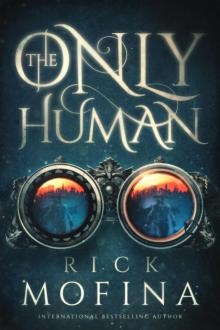 The Only Human
The Only Human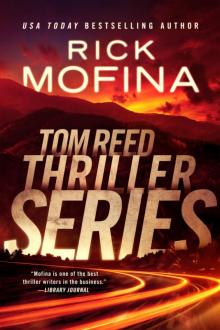 Tom Reed Thriller Series
Tom Reed Thriller Series![[Tom Reed and Walt Sydowski 04.0] No Way Back Read online](http://i1.bookreadfree.com/05/tom_reed_and_walt_sydowski_04_0_no_way_back_preview.jpg) [Tom Reed and Walt Sydowski 04.0] No Way Back
[Tom Reed and Walt Sydowski 04.0] No Way Back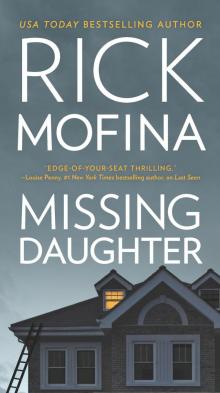 Missing Daughter
Missing Daughter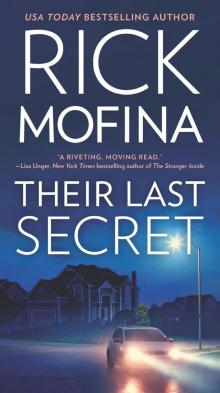 Their Last Secret
Their Last Secret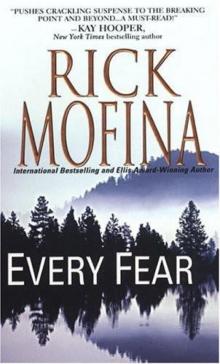 Jason Wade - 02 - Every Fear
Jason Wade - 02 - Every Fear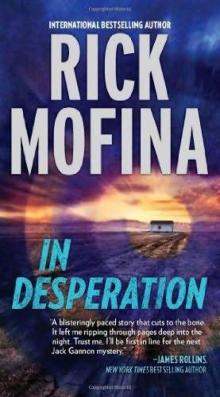 In Desperation
In Desperation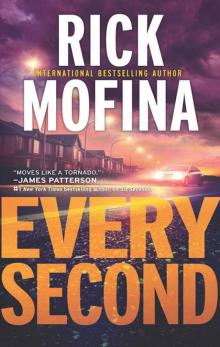 Every Second
Every Second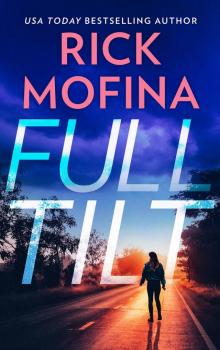 Full Tilt
Full Tilt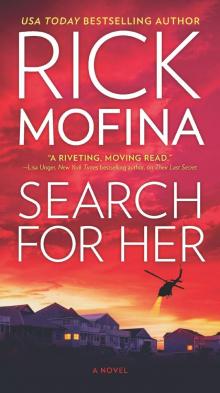 Search for Her
Search for Her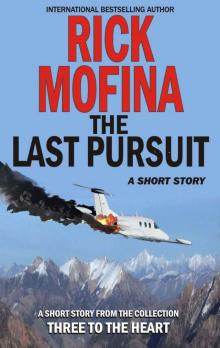 The Last Pursuit
The Last Pursuit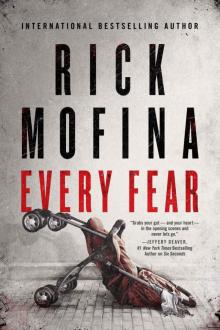 Every Fear
Every Fear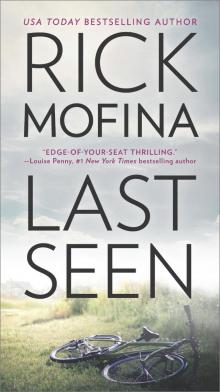 Last Seen
Last Seen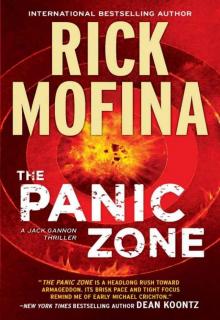 The Panic Zone
The Panic Zone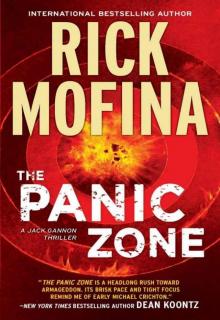 The Panic Zone jg-2
The Panic Zone jg-2 Free Fall
Free Fall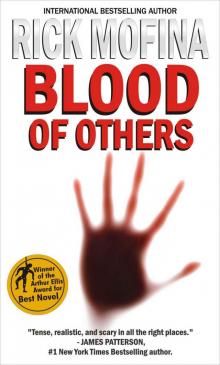 Blood of Others
Blood of Others![[Jason Wade 02.0] Every Fear Read online](http://i1.bookreadfree.com/i1/03/31/jason_wade_02_0_every_fear_preview.jpg) [Jason Wade 02.0] Every Fear
[Jason Wade 02.0] Every Fear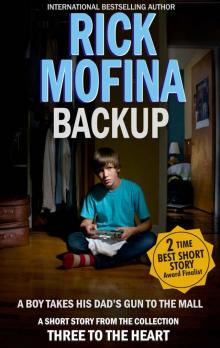 Backup
Backup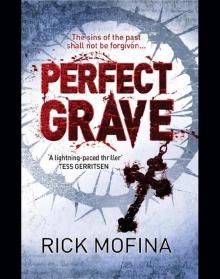 Perfect Grave
Perfect Grave Into the Dark
Into the Dark Whirlwind
Whirlwind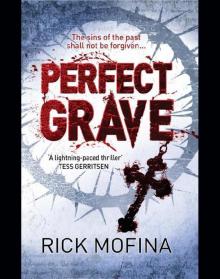 Perfect Grave jw-3
Perfect Grave jw-3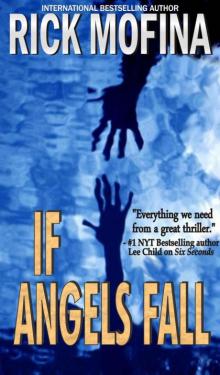 If Angels Fall (tom reed and walt sydowski)
If Angels Fall (tom reed and walt sydowski)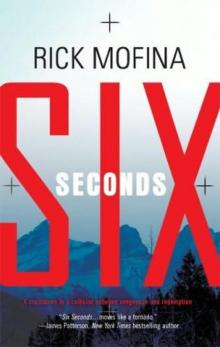 Six Seconds
Six Seconds If Angels Fall
If Angels Fall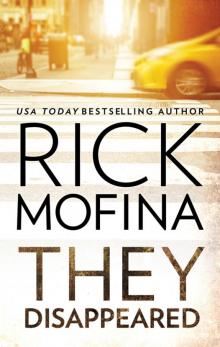 They Disappeared
They Disappeared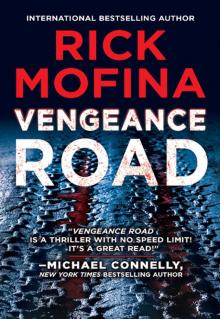 Vengeance Road
Vengeance Road Before Sunrise
Before Sunrise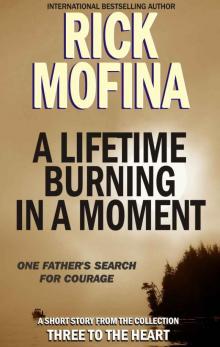 A Lifetime Burning in a Moment
A Lifetime Burning in a Moment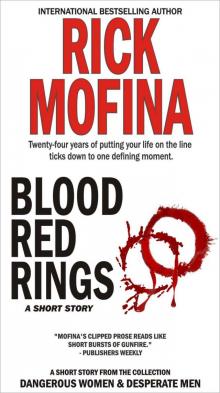 Blood Red Rings (Dangerous Women & Desperate Men)
Blood Red Rings (Dangerous Women & Desperate Men)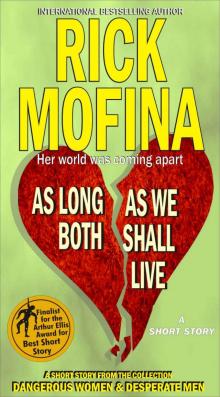 As Long As We Both Shall Live (Dangerous Women & Desperate Men)
As Long As We Both Shall Live (Dangerous Women & Desperate Men)![[Tom Reed and Walt Sydowski 01.0] If Angels Fall Read online](http://i1.bookreadfree.com/i2/04/12/tom_reed_and_walt_sydowski_01_0_if_angels_fall_preview.jpg) [Tom Reed and Walt Sydowski 01.0] If Angels Fall
[Tom Reed and Walt Sydowski 01.0] If Angels Fall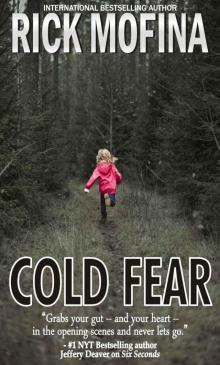 Cold Fear
Cold Fear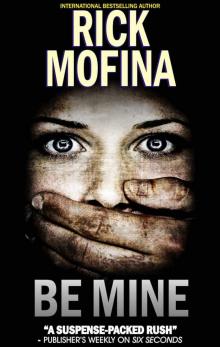 Be Mine
Be Mine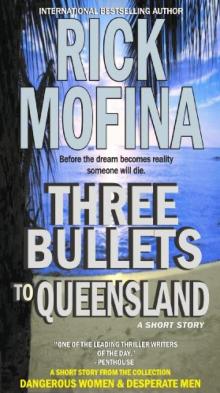 Three Bullets To Queensland
Three Bullets To Queensland